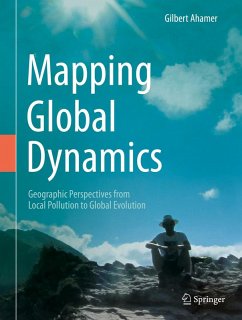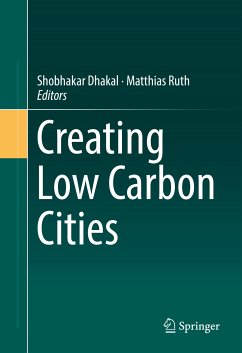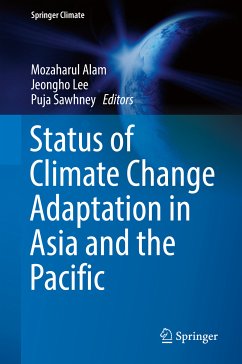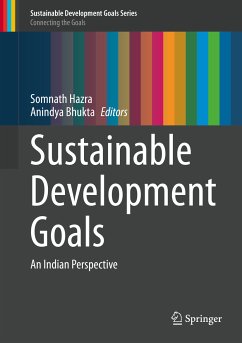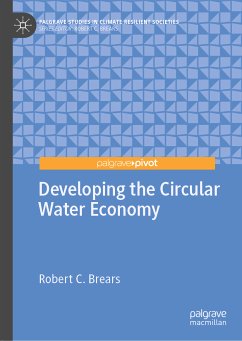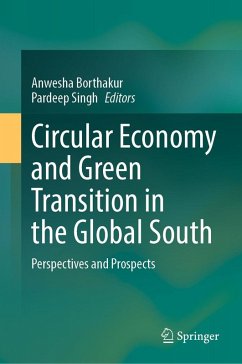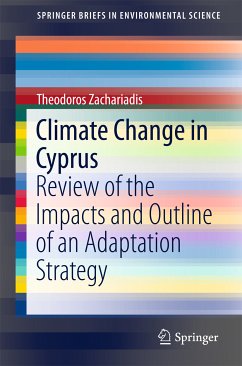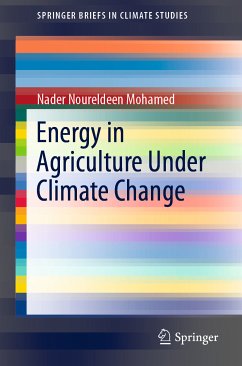
The Economics of Climate Change in Argentina (eBook, PDF)
Versandkostenfrei!
Sofort per Download lieferbar
40,95 €
inkl. MwSt.
Weitere Ausgaben:

PAYBACK Punkte
20 °P sammeln!
In this volume, the contributors discuss some of the most remarkable global warming effects in Argentina and examine policies that Latin American countries could follow to achieve their individual climate goals. Climate change is one of the most pressing issues today. However, after many years of climate negotiations, the world has failed to introduce a common global policy. Differences in countries' climate agendas have led to unsuccessful efforts. Countries willing to pursue a climate policy have sought alternative strategies to mitigate and adapt to global warming's consequences within thei...
In this volume, the contributors discuss some of the most remarkable global warming effects in Argentina and examine policies that Latin American countries could follow to achieve their individual climate goals. Climate change is one of the most pressing issues today. However, after many years of climate negotiations, the world has failed to introduce a common global policy. Differences in countries' climate agendas have led to unsuccessful efforts. Countries willing to pursue a climate policy have sought alternative strategies to mitigate and adapt to global warming's consequences within their jurisdiction. In this context, Latin American countries' role in shaping the regional climate agenda is yet to be explored.
The book covers some papers from the well-received "First Workshop on Environmental Economics and Energy" in Argentina. Using data from Argentina, the contributors analyze the effects of global warming on agricultural yields and the impact of extreme weather on human health. From a global perspective, the contributors also describe the interactions between a reduction in carbon emissions, carbon emissions intensity, and economic growth; the role that trade policies can play to reduce carbon emissions; and the paradoxes that arise from promoting renewable energies in the region. The contributors also address the relationship between sustainability and economic growth; the private sector's role in shaping policies and providing sustainable solutions; and the Latin American challenges for the next generation.
The book will be of interest to policy-makers, academics, researchers, and professionals worldwide working in climate change impacts and policy. It will also appeal to a general audience interested in climate change economics, its consequences, and the steps that countries in Latin America can take to move forward.
The book covers some papers from the well-received "First Workshop on Environmental Economics and Energy" in Argentina. Using data from Argentina, the contributors analyze the effects of global warming on agricultural yields and the impact of extreme weather on human health. From a global perspective, the contributors also describe the interactions between a reduction in carbon emissions, carbon emissions intensity, and economic growth; the role that trade policies can play to reduce carbon emissions; and the paradoxes that arise from promoting renewable energies in the region. The contributors also address the relationship between sustainability and economic growth; the private sector's role in shaping policies and providing sustainable solutions; and the Latin American challenges for the next generation.
The book will be of interest to policy-makers, academics, researchers, and professionals worldwide working in climate change impacts and policy. It will also appeal to a general audience interested in climate change economics, its consequences, and the steps that countries in Latin America can take to move forward.
Dieser Download kann aus rechtlichen Gründen nur mit Rechnungsadresse in A, B, BG, CY, CZ, D, DK, EW, E, FIN, F, GR, HR, H, IRL, I, LT, L, LR, M, NL, PL, P, R, S, SLO, SK ausgeliefert werden.



